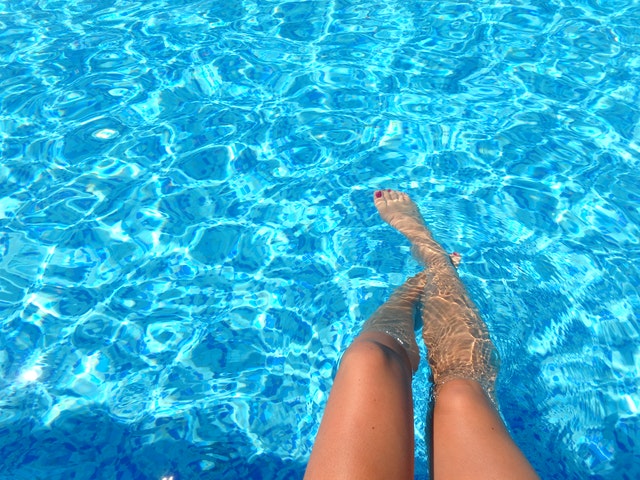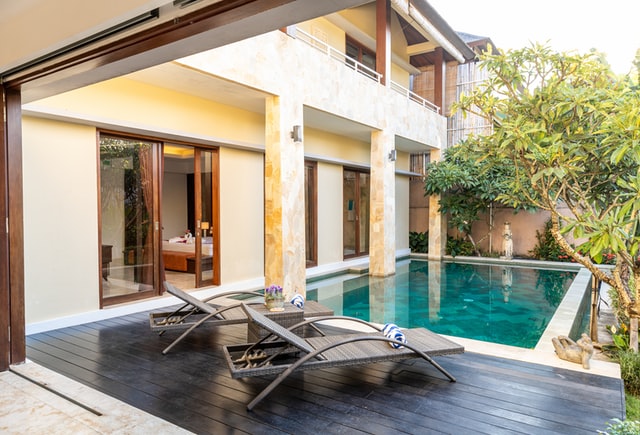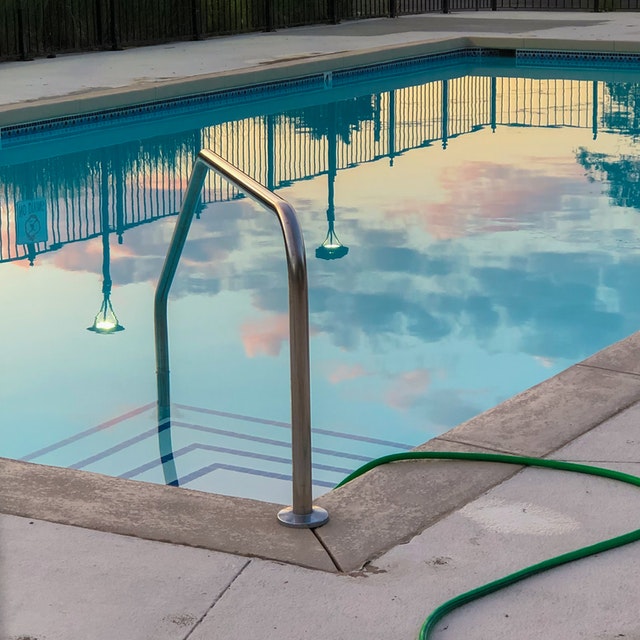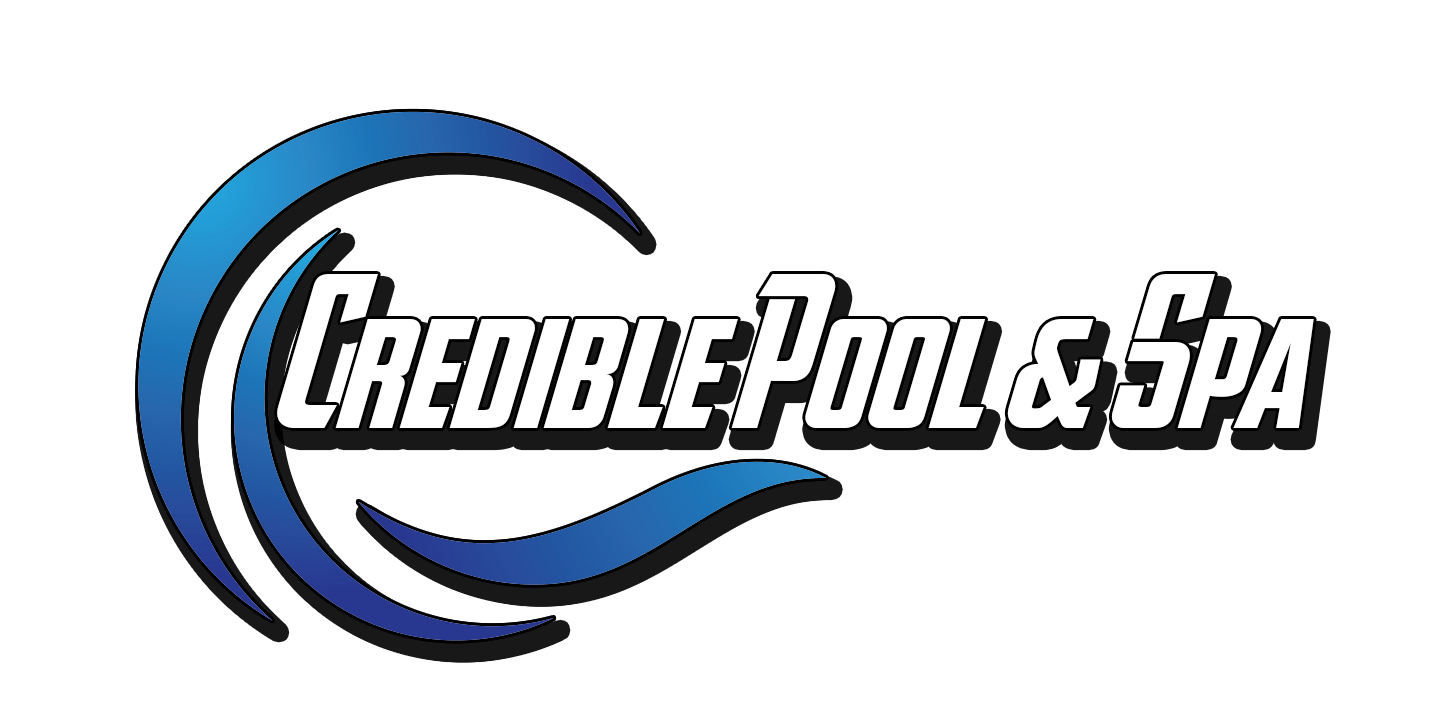Contributed by Joshus Davis of DeSantis Property Management.

Swimming pools extend the number of ways residents of a rental property can use the home’s outdoor areas. Regardless of people’s age, they never outgrow the joy of splashing in the water or the refreshing feeling of lounging by the poolside.
Having a swimming pool within your rental property is one of the best ways to attract quality renters to the property. A swimming pool in a rental home enhances tenant satisfaction and adds an air of luxury to the house.
When you install a pool in your rental, the property automatically acquires tremendous value in the eyes of renters. The swimming pool keeps the surrounding areas cool and offers more ways for tenants to play, relax and entertain. Renters are willing to pay more for this.
However, although a swimming pool will draw higher-paying renters to your rental, only a well-maintained pool will keep them. The initial perception of value a swimming pool creates for your rental will be lost if you fail to keep the pool in top condition.
It is far better to not have a pool on your premises than to have one with rancid water or stained poolsides and deck. A rental with an unkempt swimming pool not only loses value, but its value will also fall below what it was before the installation of the pool.
What are the consequences of poor pool maintenance for landlords and their tenants?
The Danger of Poor Pool Maintenance

Unpleasant swimming experience: Chemically unbalanced swimming pool water ruins the swimming experience. That is because the water harms the eyes, hair, and skin of swimmers.
Liability from slips and falls: Landlords expose themselves to lawsuits if they don’t make the pool area slip-resistant or keep it free of tripping hazards.
Breeding ground for pests and pathogens: Humans are not the only creatures drawn to water; bugs and bacteria love water. A poorly maintained pool can become a festering pit where pathogens and pests breed.
Unpleasant odor: A swimming pool that is allowed to breed organisms will have foul-smelling water that makes lounging or living in the vicinity of the pool unpleasant.
Increased exposure to disease: Tenants will get sick frequently if they reside in a property where the swimming pool has insects and bacteria infestations.
The risk of drowning: Poorly maintained pool fencing and inadequate safety measures increases the risk of a child or pet drowning.
Ruined aesthetics: The clouded water, stained pool deck, and broken fence of a poorly maintained pool will harm the home’s aesthetics and devalue the rental.
Landlord’s Guide to Pool Maintenance
Maintaining a swimming pool is more important and takes more work than installing the pool. Here are the key things you have to know about pool maintenance as a landlord:
1. Clean the pool

It would be best if you skim the pool’s surface every day. Doing so will get rid of debris and dead insects. Regular skimming reduces your use of pool chlorine. Along with skimming, vacuum the pool at least once a week. The pool sides and deck also need to be cleaned with a pool brush every week.
2. Maintain water levels
Pools constantly lose water through splashing and evaporation. If the water level is low, the pool filtration system will not work well. Checking the pool water level is the easiest maintenance task; you should do it daily. If the water level drops inexplicably, check the swimming pool for leaks.
3. Maintain water chemistry
The proper water chemistry makes pool water soothing to the body. However, unbalanced water chemistry will harm the pool sides and equipment. Maintaining a pool’s chemical balance involves several tasks; checking water pH, checking for calcium hardness, and monitoring pool chlorine levels. We recommend that you leave the management of pool water chemistry for experts.
4. Clean the pool filter regularly
Pool filters help keep the pool water free of debris; without them, the pool would be unusable. However, the pool filter can get clogged with dirt and need cleaning. To keep the filter in the best condition, clean them at least once a week.
5. Maintain pool surfaces and equipment
Swimming pools are complex systems, and they need a lot of equipment to work. Pool equipment includes pumps, heater, filters, and cleaners; they require professional maintenance. Additionally, the surrounding pool area – deck, fence, gates, and lock systems – need weekly attention.
6. Keep the pool safe
Anti-slip materials around the pool are a necessity because surfaces become slippery when wet. Handrailing and steps are also a must for preventing injuries. The pool deck area should be free of obstacles at all times. For maximum safety, we recommend a perimeter fence, a pool gate with a self-closing or self-latching mechanism, and an alarm.
Tenant Responsibility
Finally, it is better to share responsibility for pool maintenance with the tenants since they are the ones who use the pool and are close to it. The lease agreement should contain a pool addendum that outlines the roles and responsibilities of the tenant versus that of the landlord.
